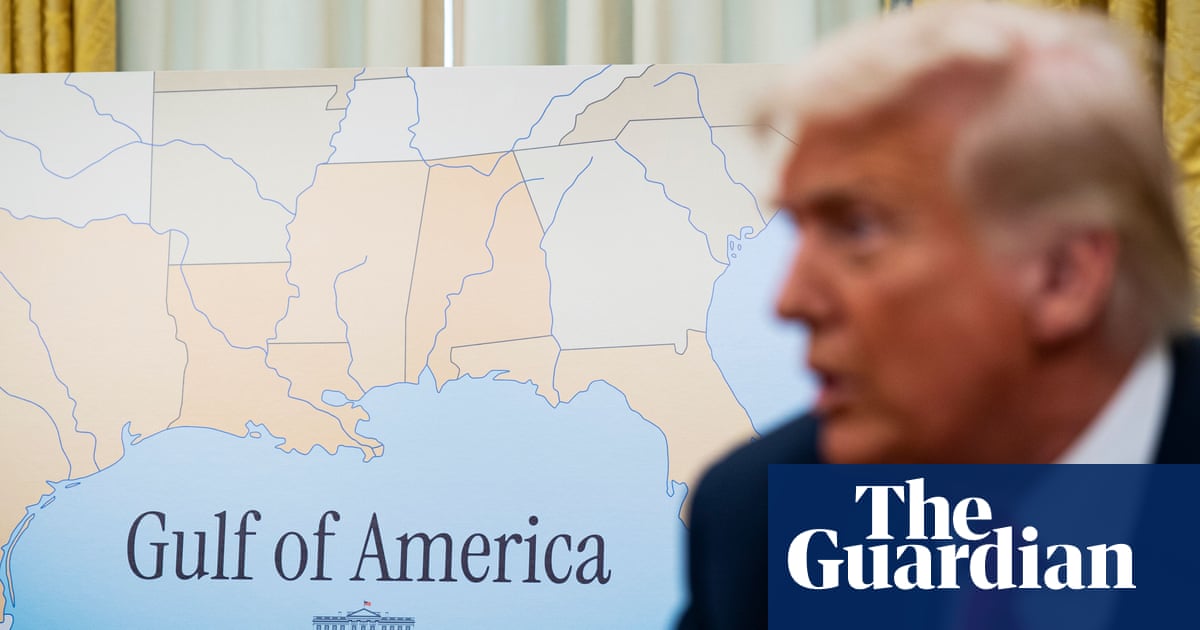Republicans in theHouse of Representativeson Thursday approved legislation to codifyDonald Trump’s policy of renaming the Gulf of Mexico to the “Gulf of America”.
The measure was sponsored by rightwing Georgia lawmakerMarjorie Taylor Greeneand passed nearly along party lines, with all Democrats opposed and almost every Republican, with the exception of vulnerable Nebraska representative Don Bacon, voting in favor.
Trump had announcedin his inaugural speech that the US government would change how it refers to the body of water, which stretches from Florida to Texas and along the coast of Mexico. The bill would make the name change official for federal agencies, but it’s unlikely to attract the Democratic support needed to pass the Senate. Even if it did, other countries have no obligation to use the new name.
Speaking on the House floor before the vote, Greene leveled unfounded allegations againstDemocratsand cast changing the name as a patriotic obligation.
“The American people rose up in a historic election in November of 2024 and they told Washington DC they have had enough of the Democrat embrace and love affair of the cartels in Mexico. But Democrats today are fighting to keep the Gulf of America named the Gulf of Mexico because the cartels are their business partners,” said Greene.
“You would think this would be the easiest vote that the United StatesHouse of Representativescould take, because, after all, everybody in here swore an oath to defend our constitution and to defend our laws and our land. Oh, but no, the Democrats can’t do it because we had four years of Democrat control where our borders were wide open and the American people are fed up with it.”
Democrats countered that the legislation was a waste of time.
“The truth is, this bill won’t fix a single problem. It does absolutely nothing to help the Gulf coast. It won’t create a single job. It’s not going to fix our climate crisis. It’s just dumb,” said Jared Huffman, the top Democrat on the House natural resources committee.
Trump and his allies havepushed companiesto use the new name for the gulf in the months since he took office. In February, it barred Associated Press journalists from the Oval Office, Air Force One and White House events in retaliation for the wire agency refusing to use the new term in its authoritative stylebook. A federal judge ordered the administration to restore the AP’s access in April.
Sign up toHeadlines US
Get the most important US headlines and highlights emailed direct to you every morning
after newsletter promotion
Trump has kept up his interest in changing the names of bodies of water globally. This week, it was revealed thatthe president will announce plansto change how the Persian Gulf is referred to during a forthcoming visit to Saudi Arabia.
